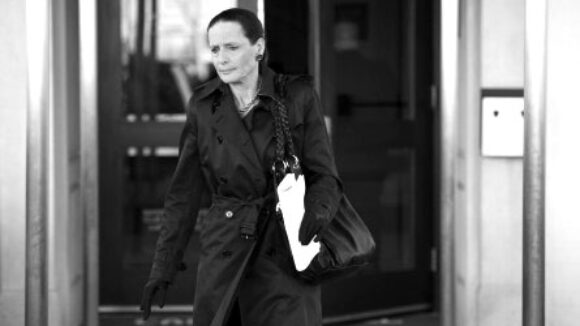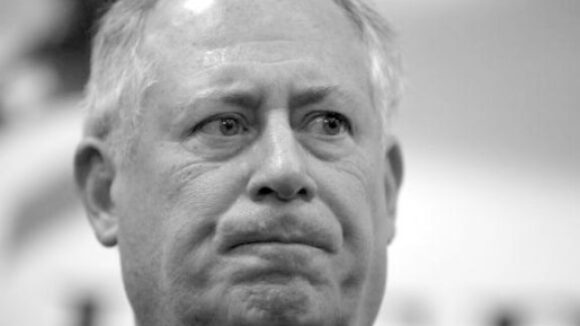Big Labor Bosses Plan to Exploit Hurricane Sandy Aid
Calling on New Jersey Gov. Chris Christie — pull out your veto pen. That’s because the union bosses in New Jersey are pushing a scheme to pad their own pockets with taxpayer dollars. Mike Proto…

Calling on New Jersey Gov. Chris Christie — pull out your veto pen. That’s because the union bosses in New Jersey are pushing a scheme to pad their own pockets with taxpayer dollars. Mike Proto…
Early last November, an array of news outlets reported on allegations that International Brotherhood of Electrical Workers (IBEW/AFL-CIO) union bosses in New York and New Jersey had sought to reap a forced-union-dues windfall from Hurricane Sandy. Whistleblowers charged that top…

Virginia Gov. Robert McDonnell is putting the interests of taxpayers first by firing a labor union activists from the board of directors of the Metropolitan Washington Airports Authority (MWAA). …
Our readers are well aware of costly and wasteful project labor agreements that eliminate competitive bidding on construction projects to ensure that the project pays a “union wage.” Members of the House were forced to decide on whether tax dollars…

Pro-Forced Unionism Federal Candidates Will Have Nowhere to Hide (source: National Right To Work Committee April 2012 Newsletter) Rep. Jean Schmidt (R-Ohio) disregarded her pro-Right to Work constituents. Then voters showed her the door. Credit: Bill Clark-CQ Roll Call File Photo Federal and state disclosure reports filed by union officials and their agents show unambiguously that Big Labor controls the most massive political machine in America. In fact, just one type of report, the LM-2 forms that private-sector (and some public-sector) unions with annual revenues exceeding $250,000 are required to file with the federal government, shows that Big Labor pours over a billion dollars into politics and lobbying in every federal campaign cycle. For example, LM-2's for the years 2009 and 2010 show that unions filing such forms spent a total of $1.14 billion in forced dues-funded union treasury money on "political activities and lobbying" in the 2010 election cycle alone. A recent National Institute for Labor Relations Research analysis of data from LM-2's and other federal and state reports conservatively concluded that the union machine spent a total of $1.4 billion on federal and state politics and lobbying in 2009 and 2010. Candidate Survey Is 'One of the Committee's Most Effective Tools'

Construction contracts for state projects should be awarded based on merit and price not as a giveaway to construction unions, the state of Oklahoma as decided. Gov. Mary Fallin has signed legislation to ban wasteful Project Labor Agreements (PLAs)…

Virginia has enacted legislation to ensure fair and open competition for construction contracts barring wasteful Project Labor Agreements that drive up the cost of construction to taxpayers by nearly 20%. The bill was signed by Gov. McDonnell. Delegate Barbara…

Union-label Illinois Gov. Pat Quinn has run up his state's public spending and debt to Greece-like levels. Credit: www.chicagonow.com Compulsory-Unionism Stronghold State Drowning in Taxes and Debt (source: National Right To Work Committee February 2012 Newsletter) In early 2012, as the national economy continues struggling to recover from the severe 2008-2009 national recession, many states are in financial dire straits. But Big Labor-dominated Illinois is very arguably the worst fiscal basket case of all. Early last month, Moody's Investors Service downgraded Illinois debt to A2, finding its creditworthiness to be the worst of any of the 50 states, including even government union-controlled California. In its report, Moody's specifically berated Illinois's "weak management practices." On January 22, a Chicago Tribune editorial observed: "Deadbeat Illinois owes some $8.5 billion in old bills, tax refunds, employee health insurance and interfund borrowing debts. That's roughly one-fourth the state's spending this year from its general funds." Over and above that, Illinois has "nearly $200 billion in debts and unfunded obligations." Burdened by labor policies authorizing union monopoly bargaining and forced union dues and fees in both the private and public sectors and a tax and regulatory climate that are hostile to private-sector job and income growth, the Prairie State has been in trouble for a long time. Big Labor 'Cure-All' For Rapidly Rising Government Debt: Massive Tax Hikes But Illinois's outlook grew even bleaker after union-label Democratic Gov. Pat Quinn and like-minded legislators acted in January 2011 to put the state, in the governor's words, "back on sound fiscal footing."

Union-label Illinois Gov. Pat Quinn has run up his state's public spending and debt to Greece-like levels. Credit: www.chicagonow.com Compulsory-Unionism Stronghold State Drowning in Taxes and Debt (source: National Right To Work Committee February 2012 Newsletter) In early 2012, as the national economy continues struggling to recover from the severe 2008-2009 national recession, many states are in financial dire straits. But Big Labor-dominated Illinois is very arguably the worst fiscal basket case of all. Early last month, Moody's Investors Service downgraded Illinois debt to A2, finding its creditworthiness to be the worst of any of the 50 states, including even government union-controlled California. In its report, Moody's specifically berated Illinois's "weak management practices." On January 22, a Chicago Tribune editorial observed: "Deadbeat Illinois owes some $8.5 billion in old bills, tax refunds, employee health insurance and interfund borrowing debts. That's roughly one-fourth the state's spending this year from its general funds." Over and above that, Illinois has "nearly $200 billion in debts and unfunded obligations." Burdened by labor policies authorizing union monopoly bargaining and forced union dues and fees in both the private and public sectors and a tax and regulatory climate that are hostile to private-sector job and income growth, the Prairie State has been in trouble for a long time. Big Labor 'Cure-All' For Rapidly Rising Government Debt: Massive Tax Hikes But Illinois's outlook grew even bleaker after union-label Democratic Gov. Pat Quinn and like-minded legislators acted in January 2011 to put the state, in the governor's words, "back on sound fiscal footing."